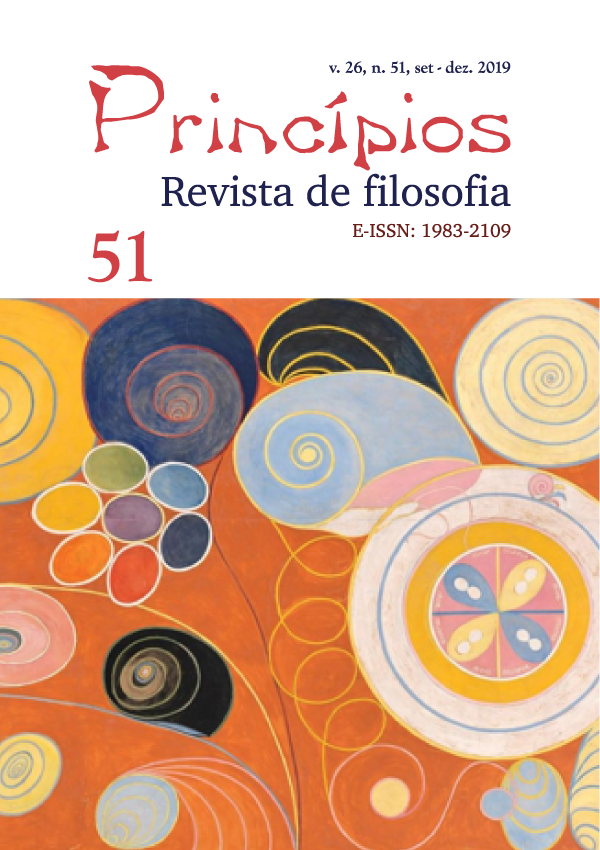The possible moral worlds of Mackie and MacIntyre
DOI:
https://doi.org/10.21680/1983-2109.2019v26n51ID18067Keywords:
Ethics, Skepticism, Contextualism, Moral Ontology, Linguistics, ObjectivityAbstract
We analyze in this article the mais philosophical characteristics of the moral skepticism of Mackie and the moral contextualism of MacIntyre. From the ontological point of view, we claim that Mackie and MacIntyre adopt different ontologies. Mackie takes a physicalist ontology or materialistic and MacIntyre a social and cultural ontology. For this reason, Mackie concludes that moral values are not objective, whereas MacIntyre concludes, on the contrary, that moral values are objetive. From the linguistic point of view, Mackie’s theory of ‘error’ postulates that the use of Western moral language is based on a (false) belief in the objectivity of moral values, whereas MacIntyre’s theory of contemporary moral disagreement proposes, unlike, that the use of moral language in postmodern society is based os a (false) belief in the subjectivity of moral values.
Downloads
Downloads
Published
How to Cite
Issue
Section
License
Authors retain copyright and grant the journal right of first publication with the work simultaneously licensed under a Creative Commons Attribution License that allows others to share the work with an acknowledgement of the work's authorship and initial publication in this journal.


 Português (Brasil)
Português (Brasil) English
English Español (España)
Español (España) Français (Canada)
Français (Canada)


